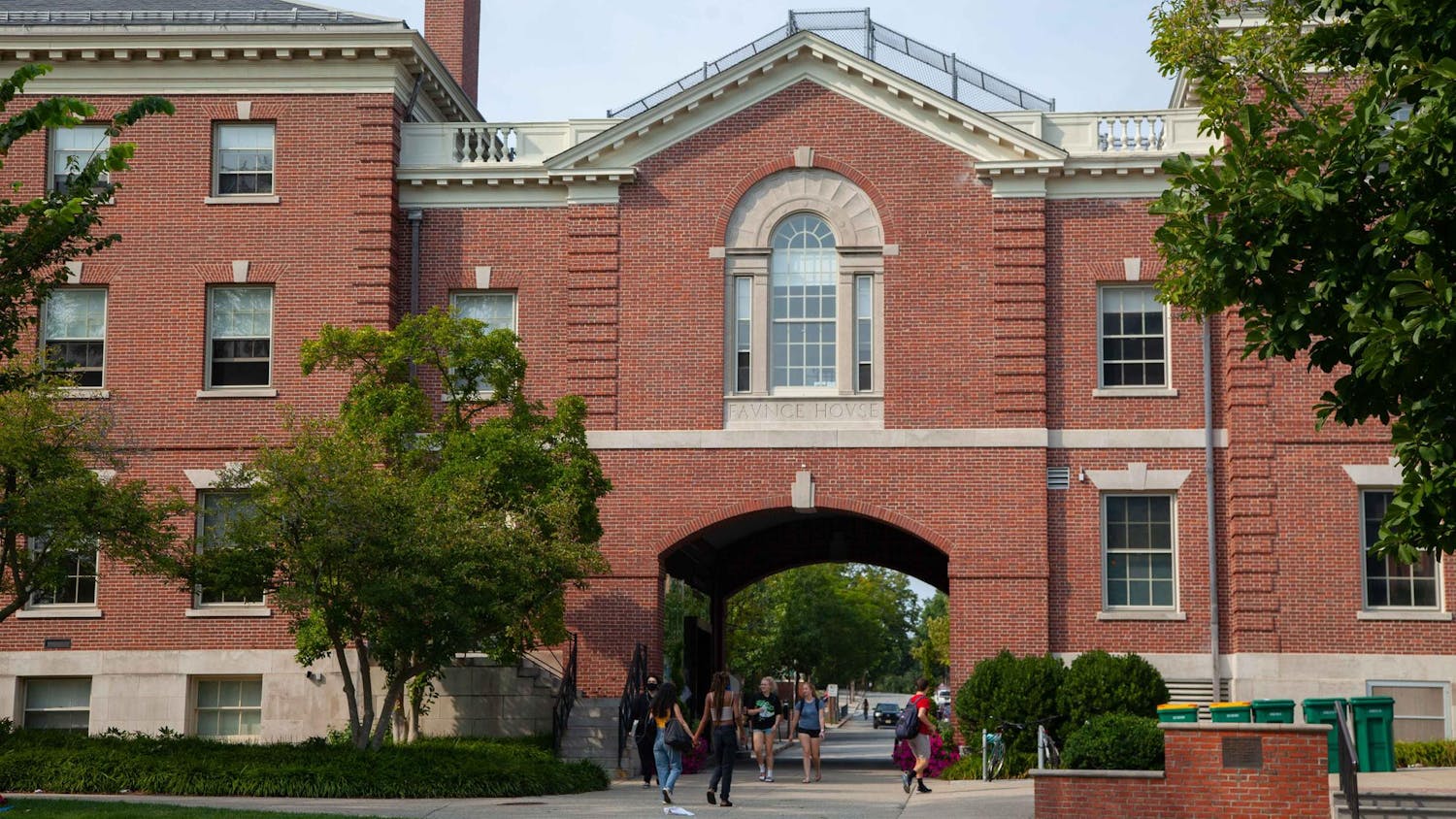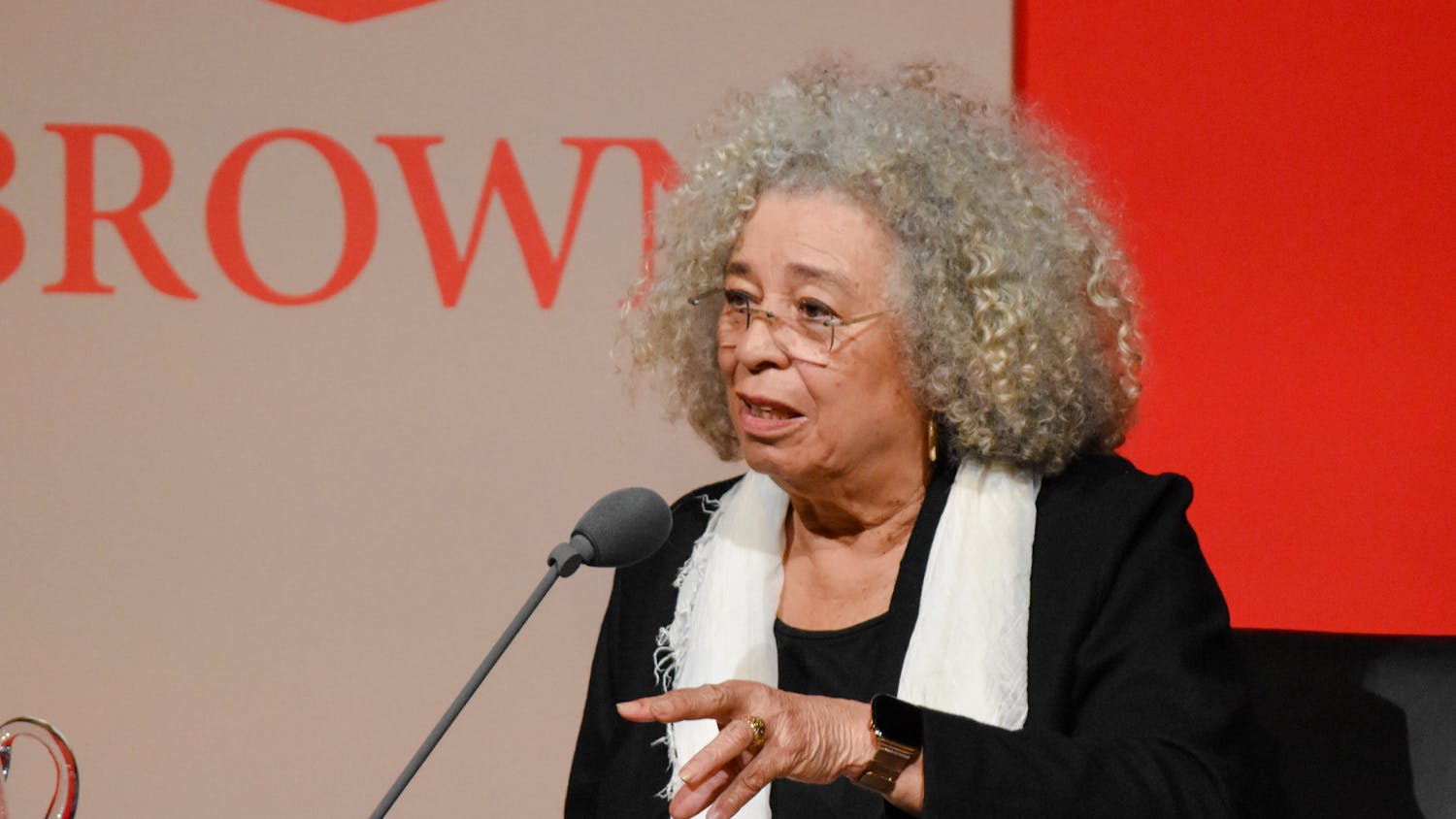Nicholas Kristof, two-time Pulitzer winning journalist and op-ed columnist at the New York Times, gave a somber but empowering lecture last night to a full house in Salomon 101, advising students to step out of their comfort zones - and off the Hill - to facilitate the traditional college education and develop a sense of personal pride through purposeful humanitarianism.
Kristof co-wrote his latest book, "Half the Sky: Turning Oppression into Opportunity for Women Worldwide," with his wife Sheryl WuDunn. Only hours before the lecture, the book reached the top of the Times' bestseller list - a feat Kristof attributed to the recent release of a documentary of the same name based off the book and developed by PBS.
Though the book was published in 2009, it has recently inspired a larger movement against human trafficking and female oppression, placing pressure on U.S. politicians to bring the international issue to the top of the domestic agenda. The PBS documentary was released earlier this month, and a new Facebook application - which will transform user activity into tangible humanitarian aid - is forthcoming, Kristof said.
From the beginning of the lecture, Kristof's overarching message to students emphasized the importance of education as a mechanism for change. He began by describing the effects of a $10,000 loan to a small, rural school in China at the beginning of the 1990s, an event he cited as the impetus behind developing the book.
The loan was intended for the sole purpose of educating girls in the village in an attempt to counteract gender discrimination prevalent among Chinese families, Kristof said. Twenty-two years after the loan was made, the women from the school have gone on to surpass their traditional roles as farmers and caretakers and have entered the budding professional, working class in China.
"Women and girls are not the problem," Kristof said. "They are the solution."
Kristof then asked the crowd if they thought today's world population was composed of more men or more women. In the packed auditorium, no more than 10 hands rose in support of a skewed representation favoring men. Students almost unilaterally said they believed women comprised a larger percentage of world population. They were wrong.
Kristof explained that when basic resources are scarce, families often choose to allocate food and other forms of care to males based on culturally supported gender discrimination.
"In a world where there's not enough food, you feed your son, not your daughter," Kristof said. This leads to the needless deaths of 60 to 120 million women and girls annually, he added.
While enrolled at Harvard, Kristoff spent a year studying Arabic in Egypt and urged his audience to go abroad during college, despite the hardships they may encounter along the way.
"Feeling like you're in over your head. That's when you do your learning and growing," he told the crowd. "That sense of being overwhelmed is what I wish upon all of you."
Kristof listed three major issues - human trafficking, reproductive health and education - that need to be addressed in order to reverse the trends of oppression against women at the international level.
Much like "Half the Sky," Kristof's lecture relied heavily on stories he has encountered during his travels around the world - women who escaped sex slavery only to voluntarily return due to addictions to the numbing drugs developed in brothels, women paralyzed through premature pregnancies and cultures unwilling to accept these women back into society.
Yet in all of the cases Kristof highlighted, the women persevered. Somehow, they escaped oppression. This hope and this possibility for change is what pushes him to continue advocating for humanitarianism, he said.
During the question and answer portion that followed his speech, Kristof said he has developed a system of "cost-benefit analysis" to help determine where he focuses his coverage.
"Just as a foreigner, having a combination of white skin and a blue passport gives you a certain amount of protection just because there is commercial value to keeping you going," Kristof said. "But this doesn't apply to your interpreter or your driver. They are the people who take all the risk but get none of the credit."
Kristof also acknowledged that the dangers and uncertainties associated with international aid are what prevent more people from getting involved.
"It's hard - a lot of our efforts fail, but they have a perfect record of helping ourselves," he added, referencing the self-satisfaction involved with humanitarian aid.
Kristof said research proves "there is a real, primal pleasure associated with giving."
Ultimately, humanitarian efforts "provide us with a sense of perspective on the world and on our own lives," he added.
"The fact that we're all here right now means that we've won the lottery of life," Kristof said. "But because we have won the lottery, we have a responsibility to give back."




